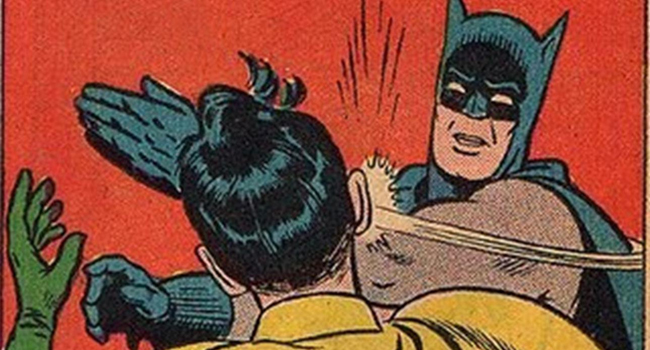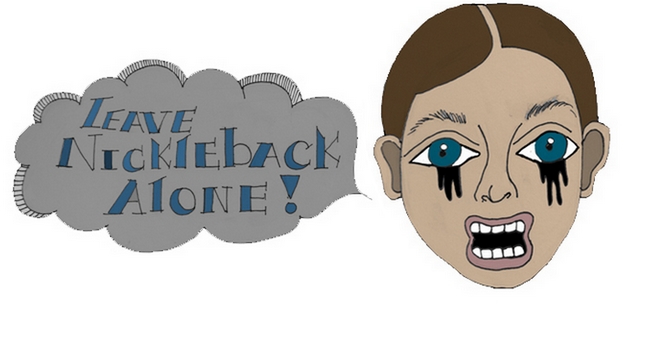Those Dancing Days are five young ladies from Sweden who just released their second album, Daydreams & Nightmares (Wichita Recordings) on March 1 and were scheduled to tour the United States this spring, with performances at the recent SXSW Festival in Austin, Texas. The record was produced by Robyn-producer Patrik Berger, one of the new songs was co-written by Max Martin (Kelis, The Veronicas, Katy Perry) and the quintet has toured with Peter Bjorn and John, The Cribs, Shout Out Louds and The Magic Numbers, among others.
In short, they don’t sound like terrorists or security risks. Yet, despite the band and its management booking this tour in September 2010, the ladies’ daydream of a successful show at SXSW and a following tour of the U.S. turned into a nightmare.
Although the band was eventually granted visas, by the time they got approval it was too late to make most of the performing commitments.
Why did this happen? The United States Citizenship and Immigration Services (a division of the Department of Homeland Security) issues visas for entry to the U.S., but delays for adjudication of the standard applications for O and P, visas, the type usually used by performers, have taken two months or more, with unexpected delays and seemingly random requests slowing down the process. In many cases, this has led to foreign musical acts having to reschedule or cancel performances, or cancel entire tours.
In the middle of 2001, the U.S. government instituted premium visa processing, guaranteeing quicker service at higher fees. According to an article published by The New York Times in July, 2010, “after that change, and with the security concerns in the wake of the September 11th terrorist attacks, standard service seemed to lag, and puzzling variations in policy enforcement introduced a level of unpredictability that could wreak havoc with touring schedules.”
When reached for comment, Those Dancing Days’ manager, Helen McLaughlin of McLaughlin Music Management in Sweden, said:
“We are all devastated …. The firm we used to help us with petitions have not been able to give us any clear answer as to why the authorities have acted so erratically this year. They had never experienced anything like it in their 10 years of business. By the time we received our approval we had missed our transatlantic flights and thus all our domestic U.S. flights. Trying to book new flights to Austin during the week of South by Southwest is like finding a needle in a haystack unless you want to spend fantasy money and are willing to take five different connecting flights by which time your poor jet-lagged band arrive too late for 70 percent of their appointments anyway … The U.S. agent, marketing and PR team we work with had done an outstanding job of putting together about as good a schedule at South by Southwest that anyone can ask for—and our label that funds everything including the visa petitions (not cheap!) and our travel have no way of getting anything reimbursed. Not a good experience.”
Despite assurances as recent as last summer that progress and improvements were being made, there’s an epidemic afoot in this country, one whose symptoms have been expressed so sporadically that it has gone unrecognized for the most part by the mainstream media.
The U.S. government is controlling what foreign music the American public can see live. It may not be a deliberate conspiracy, but gross negligence, or incompetence, or inefficiency is causing the U.S. to limit the access of our borders to musical artists.
In addition, requirements that the artists “must have achieved sufficient renown” have been introduced in order to justify their granting of the artists’ visa application to enter the U.S. The net effect?
New music is not performed in the U.S. by new artists. After all, if a musical group has just started making music and touring, how on earth are they supposed to demonstrate “sufficient renown,” and who makes that decision, and what criteria do they use to determine a musical act has generated “sufficient renown?” How is the American audience supposed to discover new music if they don’t have the opportunity to see it?
Here are the standards set forth to obtain an O-1 visa by the USCIS, according to their website: “O-1: Extraordinary ability in the field of arts means distinction. Distinction means a high level of achievement in the field of the arts evidenced by a degree of skill and recognition substantially above that ordinarily encountered to the extent that a person described as prominent is renowned, leading or well known in the field of arts.”
The USCIS website lists the criteria necessary to apply for an O-1B visa, including: winning or being nominated for a Grammy, Emmy or Academy Award; being a performer in a production or events which have received critical reviews, advertisements, publicity releases, publications, contracts or endorsements; having achieved national or international recognition for achievements, as shown by critical reviews or other published materials by or about the beneficiary in major newspapers, trade journals, magazines or other publications; a record of major commercial or critically acclaimed successes; and received significant recognition for achievements, a high salary or other substantial remuneration for services in relation to others in the field.
So, it’s not just that you can’t be “new,” you also have to have won Grammys or sold a platinum amount of records! But it’s not just “new” musical acts who have been affected.
Preliminary research uncovered more than 20 musicians or bands that have had their U.S. tour dates affected by these unreasonable or untenable standards. Last spring, the British band Chapterhouse reunited 20 years since their formation and were scheduled to play at Lincoln Hall in Chicago, but their American tour dates were rescheduled, thanks to that unpronounceable (and unspellable) Icelandic volcano, but also due to the lengthy timeline now required to obtain U.S. visas.
In addition, within the past three years, visa delays have led to cancellations or rescheduling for veteran punk rockers The Damned and 999, post-punk guitar janglers Echo & The Bunnymen, ska reunion act The Specials, Bad Lieutenant (which featured members of New Order) and other rockers from the UK such as the old-school Godfathers and new-school Wombats. Exports beyond the UK have been also affected: Nigeria’s King Sunny Adé, Canada’s Basia Bulat and James LaBrie, French DJ Laurent Garnier and Indonesian grindcore combine Wormrot, have suffered through delays and cancellations.
German industrial music pioneers Einstürzende Neubauten cancelled their entire U.S. tour and refused to reschedule it, given that it was planned to coincide with their 30th anniversary. In a press release, the band indicated that while “the US Department of Homeland Security did issue approvals for the band’s visas, it was not done in time to secure the appointments at the overseas embassies and consulates that represent the necessary final step in the process.”
Not just rock music has been impacted: Last spring the Chicago Opera Company went past their budget to hire an immigration attorney in an effort to get three of their visiting musicians visas—they got two of their artists into the States at the last minute and had to replace the third.
An article on this issue in the Minneapolis Star-Tribune refers to many performers who have been impacted, including three Australian children’s theater actors, two Flamenco dancers, a Brazilian choreographer and his 10-member dance troupe and an Argentine band that fuses Klezmer music with tango.
East African singer Minyeshu Tedla and her international band members were denied visas because their mix of “Ethiopian music with … pop, jazz, blues and reggae” was not “culturally unique,” according to U.S. Citizenship and Immigration Services. Should it be up to a division of the Department of Homeland Security to determine what art is “culturally unique?”
In July 2010, officials from the USCIS met with arts groups and indicated they were “making an effort to speed up and improve its visa operations,” and that “standard applications for O and P visas, the types most often used by performers and athletes, would be adjudicated within 14 days.” More often than not—as in the case of Einstürzende Neubauten—visa delays have been the source of trouble opposed to an outright denial.
In a phone interview with the director of the agency, Alejandro Mayorkas, a Cuban immigrant, told The New York Times, “What this means is that we are establishing for ourselves and our customers a standard by which our success and failure is to be measured. One thing is to deliver the adjudications in rapid time because of the needs of the community, and another is to ensure that we achieve fair and just adjudications.”
Arts groups greeted the expression of his commitment as a welcome change, and indicated under Mayorkas’ leadership their “sometimes frosty relationship” has begun to thaw.
Despite assurances that his commitment “is a benchmark that I am setting for our agency upon which the public should be able to rely,” the recent nightmarish experience of many foreign performers, including that of Those Dancing Days, indicates there is still much to be improved in opening the U.S. borders to foreign performers. Mayorkas could not be reached for comment.
In the article on visa issues impacting the Minneapolis arts community, Julie Voigt, senior program officer for performing arts at the Walker Art Center summed it up: “Every visa we do now is a huge process, with new, more complicated rules. It has a chilling effect on cultural exchanges.”



